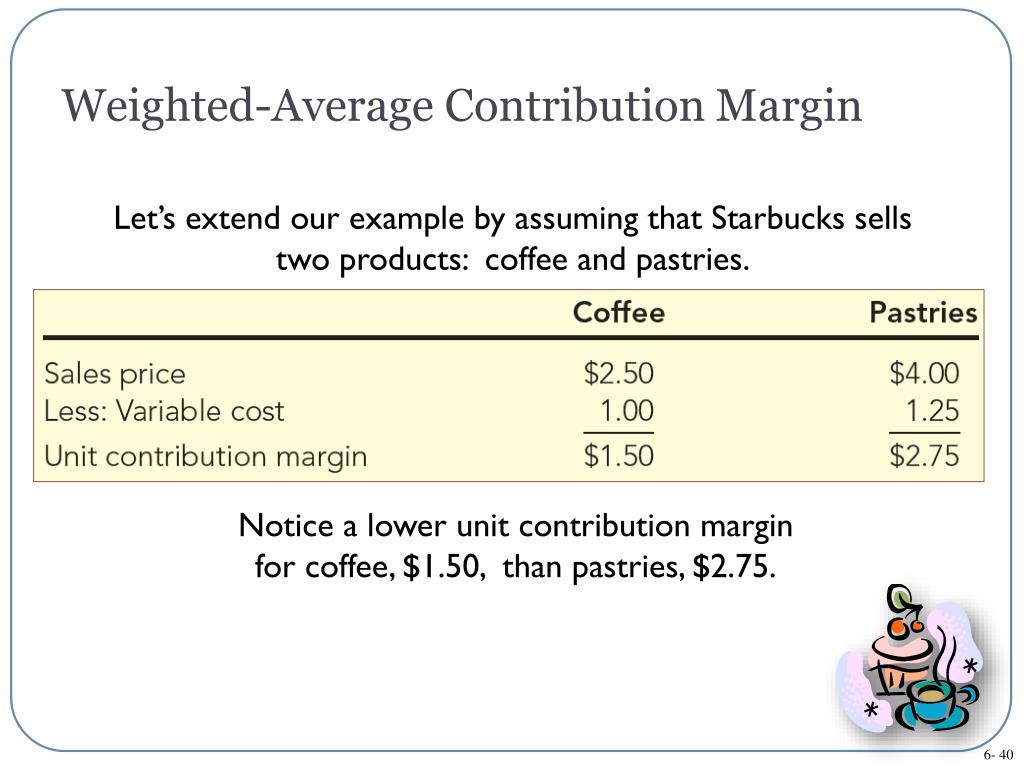
The CM ratio is a useful tool for managers when making decisions such as setting sales prices, selecting product lines, and managing costs. It is also used in break-even analysis and to measure operating leverage. The $30.00 represents the earnings remaining after deducting variable costs (and is left over to cover fixed costs and more). In 2022, the product generated $1 billion in revenue, with 20 million units sold, alongside $400 million in variable costs. Decisions can be taken regarding new product launch or to discontinue the production and sale of goods that are no longer profitable or has lost its importance in the market. Variable expenses directly depend upon the quantity of products produced by your company.
- Reduce variable costs by getting better deals on raw materials, packaging, and shipping, finding cheaper materials or alternatives, or reducing labor costs and time by improving efficiency.
- Management should also use different variations of the CM formula to analyze departments and product lines on a trending basis like the following.
- Either way, this number will be reported at the top of the income statement.
- It represents how much money can be generated by each unit of a product after deducting the variable costs and, as a consequence, allows for an estimation of the profitability of a product.
Get in Touch With a Financial Advisor

A high margin means the profit portion remaining in the business is more. It may turn out to be negative if the variable cost is more that the revenue can cover. Contribution margin analysis is the gain or profit that the company generates from the sale of one unit of goods or services after deducting the variable cost of production from it.
Fixed cost vs. variable cost
Formerly a reporter, Soundarya now covers the evolving cybersecurity landscape, how it affects businesses and individuals, and how technology can help. You can find her extensive writings on cloud security and zero-day attacks. A financial professional will offer guidance based on the information provided and offer a no-obligation call to better how to prepare a master budget for your business in 2021 understand your situation. Our mission is to empower readers with the most factual and reliable financial information possible to help them make informed decisions for their individual needs. Our writing and editorial staff are a team of experts holding advanced financial designations and have written for most major financial media publications.
Contribution Margin Ratio Calculation Example
One common misconception pertains to the difference between the CM and the gross margin (GM). Shaun Conrad is a Certified Public Accountant and CPA exam expert with a passion for teaching. After almost a decade of experience in public accounting, he created MyAccountingCourse.com to help people learn accounting & finance, pass the CPA exam, and start their career. Managerial accountants also use the contribution margin ratio to calculate break-even points in the break-even analysis. Management should also use different variations of the CM formula to analyze departments and product lines on a trending basis like the following.
Do you already work with a financial advisor?
However, a general rule of thumb is that a Contribution Margin above 20% is considered good, while anything below 10% is considered to be relatively low. Thus, at the 5,000 unit level, there is a profit of $20,000 (2,000 units above break-even point x $10). Variable costs tend to represent expenses such as materials, shipping, and marketing, Companies can reduce these costs by identifying alternatives, such as using cheaper materials or alternative shipping providers.
However, if you want to know how much each product contributes to your bottom line after covering its variable costs, what you need is a contribution margin. However, ink pen production will be impossible without the manufacturing machine which comes at a fixed cost of $10,000. This cost of the machine represents a fixed cost (and not a variable cost) as its charges do not increase based on the units produced. Such fixed costs are not considered in the contribution margin calculations.
The contribution margin (CM) is the amount of revenue in excess of variable costs. Investors and analysts may also attempt to calculate the contribution margin figure for a company’s blockbuster products. For instance, a beverage company may have 15 different products but the bulk of its profits may come from one specific beverage. If the contribution margin for an ink pen is higher than that of a ball pen, the former will be given production preference owing to its higher profitability potential.
Gross margin is the difference between revenue and the cost of goods sold (COGS). On the other hand, contribution margin refers to the difference between revenue and variable costs. At the same time, both measures help analyze a company’s financial performance. However, an ideal contribution margin analysis will cover both fixed and variable cost and help the business calculate the breakeven.
Someone on our team will connect you with a financial professional in our network holding the correct designation and expertise. Our goal is to deliver the most understandable and comprehensive explanations of financial topics using simple writing complemented by helpful graphics and animation videos. Finance Strategists is a leading financial education organization that connects people with financial professionals, priding itself on providing accurate and reliable financial information to millions of readers each year. The articles and research support materials available on this site are educational and are not intended to be investment or tax advice. All such information is provided solely for convenience purposes only and all users thereof should be guided accordingly.